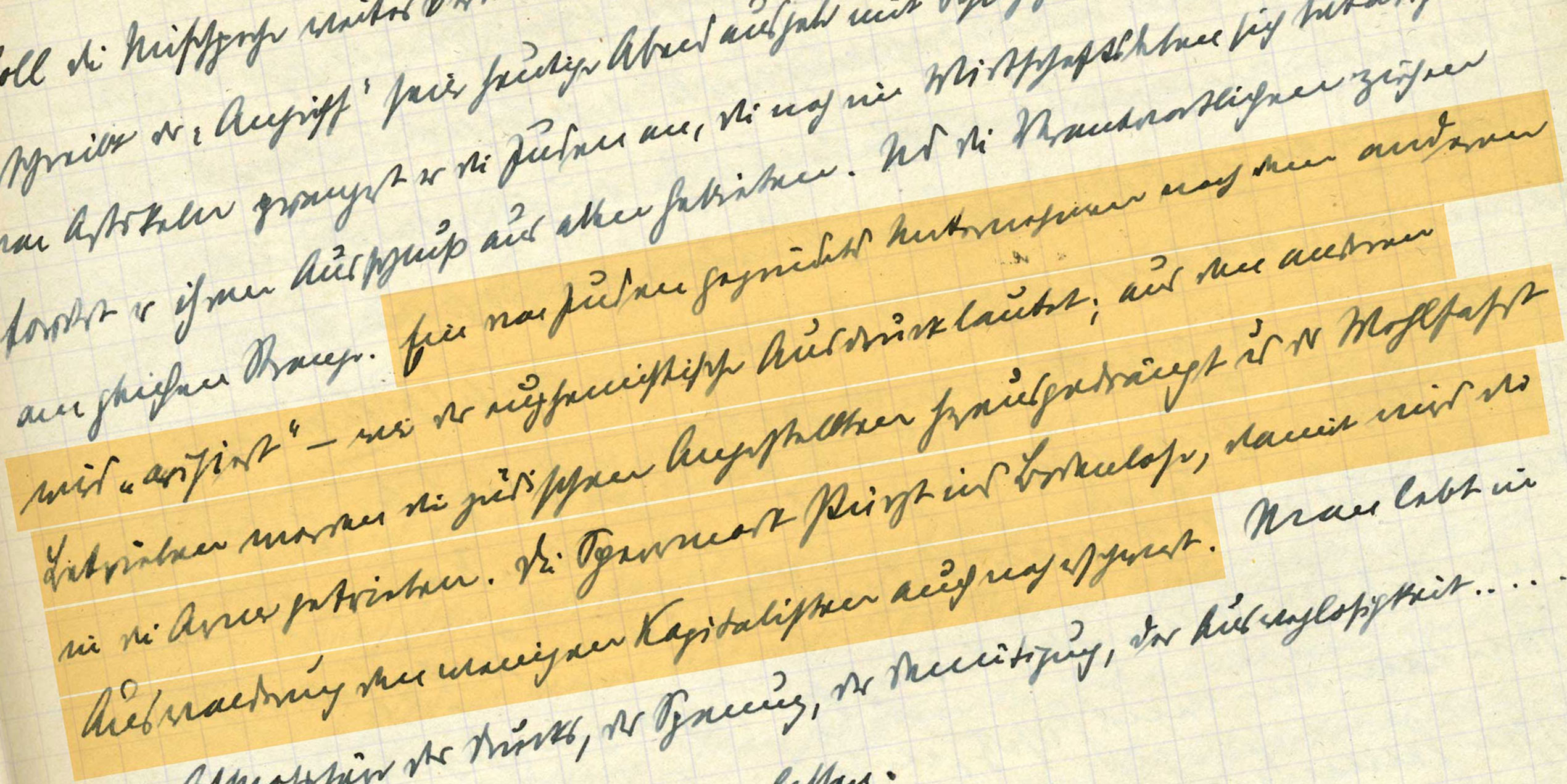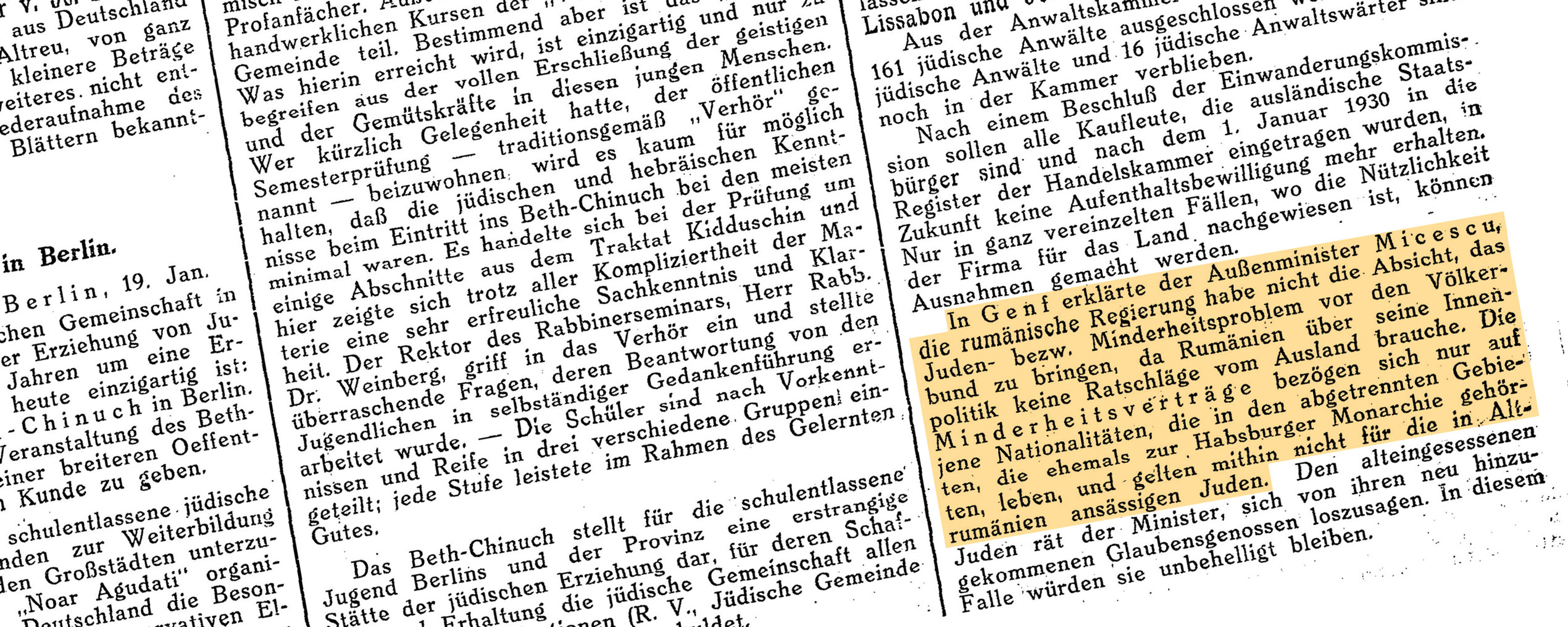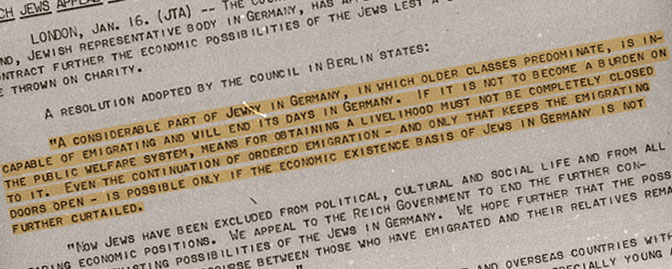Atmosphere of hopelessness
A once-celebrated public health official writes in his diary

„One company after another founded by Jews is ,aryanized‘ – so goes the euphemistic term; Jews are being forced out of the other businesses and pushed into the arms of the welfare agencies. The Sperrmark is rising uncontrollably, so that the emigration of the few capitalists is being made even harder.“
Berlin
“May you continue for a long time to be granted the opportunity to dedicate your tried and tested skills to the welfare and benefit of the city.” With these words, Berlin mayor Heinrich Sahm congratulated Prof. Erich Seligmann, Director of Scientific Institutes at the Public Health Department and an eminent authority on issues of public health, on his 25th year of service in 1932. Barely half a year later, in March 1933, Seligmann was dismissed, despite his recognized scientific achievements and his outstanding knowledge in the field of epidemics control, which he had demonstrated inter alia as a staff surgeon in World War I. In this diary entry dated February 4, 1938, Seligmann writes about “widespread confiscation of passports from Jews” and “an atmosphere of hopelessness.” Seligmann was planning a trip to Rome, where he and his wife Elsa hoped to meet their son Rolf.
SOURCE
Institution:
Leo Baeck Institute – New York | Berlin 
Collection:
Erich Seligmann Collection, AR 4104 
Original:
DM 79, Diary 2










































